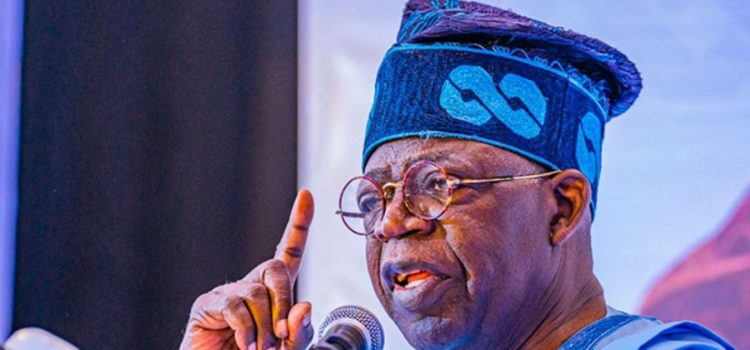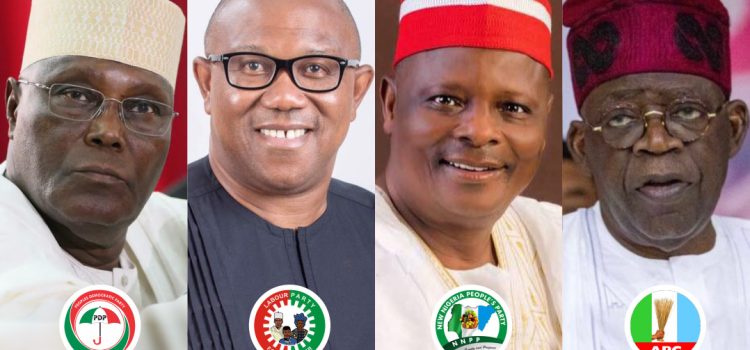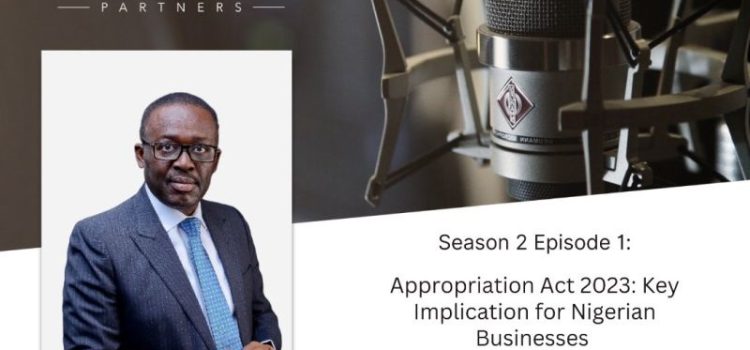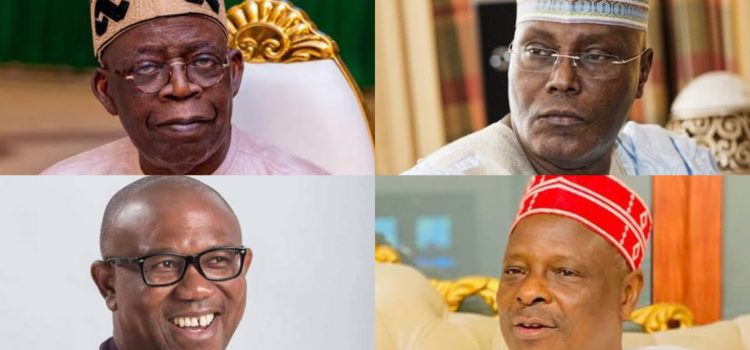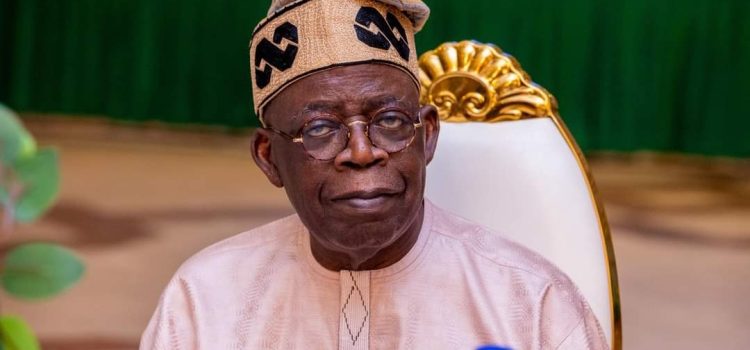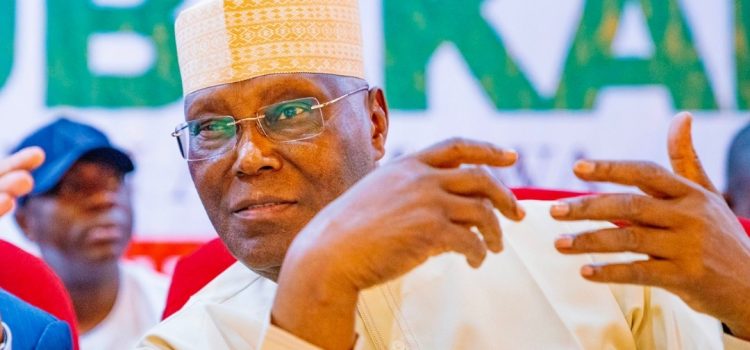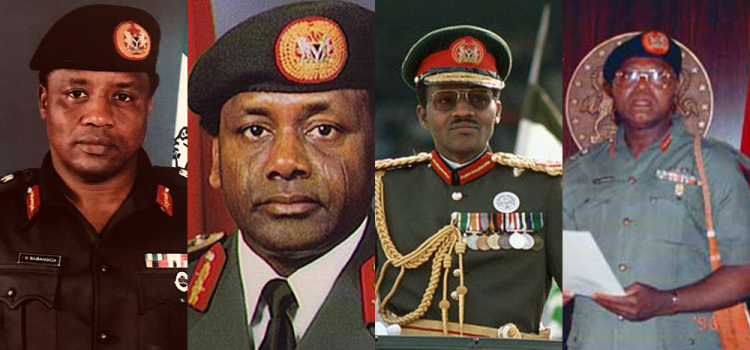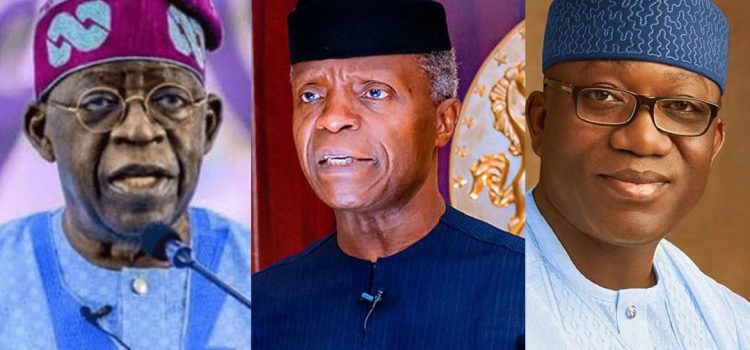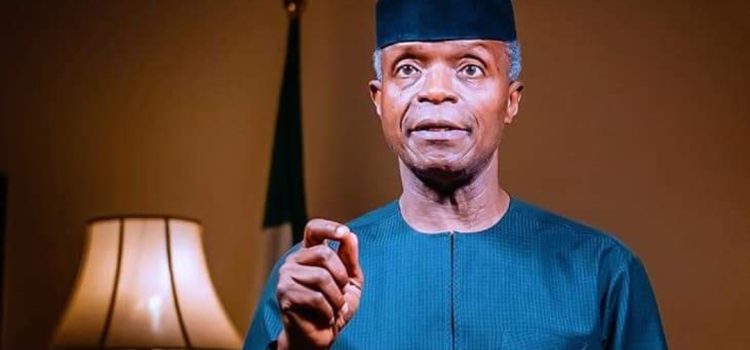Can you put in context how Nigeria fared under the administration of President Muhammadu Buhari?
I think the performance of the previous government should not be a matter of controversy since we all lived in Nigeria. I don’t expect any argument over the assertion that the economy has been suboptimal over the last nine years. I stretched it to nine years because the last year of President Goodluck Jonathan was also a period of downward economic performance. Subsequently, we witnessed suboptimal economic performance during the eight years of President Muhammadu Buhari. Indeed, the administration started with a vacuum in policy. For six months, he could not constitute the Federal Executive Council. We did not also have any clarity about the policy. The Central Bank of Nigeria was the only economic institution that was in place then. Remember, this was a period when oil prices were falling in international oil markets. Also, the global economy was slumping into recession. President Buhari did not have a team in place to respond decisively. While the initial problem was oil prices, the suboptimality in policy took over. Of course, this trend more-or-less prevailed for eight solid years. We did not have a strong economic team. Even when we had an economic team, policy outcomes were not ideal for our economy. So, FDIs suddenly disappeared. Disparate and multiple exchange rates were prevalent. Fuel subsidy became over N6 trillion. When Nigerians were demonstrating in Ojota in 2012, subsidy claims were over N1 trillion. Today, we are told it is over N6 trillion. Investment inflow also declined rapidly. GDP growth has not gone near the six-seven per cent average growth that we recorded under the administration of President Olusegun Obasanjo.
Now that we have a new government, what should be the direction economically?
I am indeed impressed with the inaugural speech of President Bola Ahmed Tinubu. It addresses most of the priorities of the economy. It also boldly speaks to political and foreign policy issues that the federation has to contend with. In terms of the economy, the president expressed bold and courageous determination to finally take us beyond the fuel subsidy regime. I firmly believe there are planning issues that need to be resolved about the subsidy removal. But he has made very clear the intent to confront the subsidy issue. It is truly a big priority. Also, the president must make sure that in the implementation of the subsidy removal, we realise the case of a deregulated market and attempt as much as possible to mitigate the concerns of the poor, civil society, and labour. These are issues I am sure the president will have plans for already. He also spoke about the multiple exchange rates, the agricultural sector, and the need to grow the economy for new investments. I believe the multiple exchange rates have impeded investment inflow. It has been the dominant constraint to foreign investment inflow. If there is one single factor responsible for the decline in foreign direct investment, it is multiple exchange rates because investors want to maximise their investment. While we ask the investors to invest at lower exchange rates, we want them to take their profits at the lower exchange rate. But they fund their businesses at a higher exchange rate because the government will not give them all the dollars they need. The need for institutional reforms at the CBN is equally important. It has been a negative signal for investors. Such reforms should focus on some of the controversies around the CBN. I am happy that the president recognised this priority in his inaugural speech. We also need pragmatic revenue and budgetary reforms. The federation does not have revenue to support the size of the Nigerian economy. I believe this is one of the areas in which President Tinubu has the best experience in terms of his ability to raise the internally generated revenue of Lagos State. I believe Nigeria is generating suboptimal revenue. Under the new government, we can significantly improve or ramp up revenue generation by using modern technology and institutional reforms. We can deploy cutting-edge technology in the Nigeria Customs Service, Nigerian Maritime Administration and Safety Agency, Federal Inland Revenue Service and Nigerian Ports Authority, NNPC Limited, among others. Honestly, the biggest priority is to get Nigeria working again. It is to make the economy productive. This entails the need to generate more power; provide functional logistics; introduce an effective public transportation system and create an enabling environment for the economy to grow and for the private sector actors to invest again in infrastructure, industrialisation, and services. This is my sense of what the priorities should be. I am very happy that they align with the focus of the new government.
Forex is not only critical to investments but also to ordinary people on the streets. But the forex market has been unstable. What is your proposal for the current forex crisis?
I think the forex crisis is an easier problem than the fuel subsidy issue. Why? Already, a significant percentage of FX procurement in the market today is done in the parallel market because the CBN is not meeting the demand. By parallel market, I include Bureaux De Change and other autonomous and non-official sources. It is the select few or preferential people that have access to foreign exchange at official rates. As it is currently, our market substantially reflects the parallel market. If you see any person selling clothes in the supermarket or anywhere they sell imported goods, they get forex at over N745 to one dollar from the parallel market. There are a few people, very high in the corporate echelon, who get dollars at an official rate. I do not worry too much about the unification of the exchange rate just because the market already reflects the exchange rate. Now, the availability will be much better. If we achieve a unified exchange rate, we will have more inflow of dollars because supply will be stronger. I even expect some level of appreciation in the exchange rate. Whenever the exchange rate reflects the market, we have a significant inflow of dollars. Under Prof. Charles Soludo as the CBN Governor, the market was supplying dollars. The CBN did not supply dollars to the market because the exchange rate at the time reflected the market. Then, the investors were bringing in dollars. MTN, investors, and Nigerians in the diaspora were bringing in dollars because it was a fair exchange rate. Once the exchange rate reflects the market, it will reduce pressure on the CBN. There is also more availability and some level of stability in the exchange rate. Better still, some modest level of appreciation in the exchange rate. The key thing is to ensure that the exchange rate reflects the market perception of the value of the Naira. As I said earlier, those two policies – fuel subsidy removal and unification of foreign exchange – have become market signals. President Tinubu sent out those positive market signals on their first day in office. The market will notice the signals. The investors will notice the signals. The inauguration day was the best day for signalling to the international community and partners – International Monetary Fund, World Bank Group, trading partners, bank and finance communities that rational economic policies are back in Nigeria. For me, that was a brilliant move.
For over a decade, the average growth in Nigeria was between six and seven per cent. Now, it has gone down significantly to about three per cent. Aside, the growth has not been inclusive when we consider other indicators. What should the new government do to manage this negative trend?
There are two elements in this question. The first element is the inclusivity of growth. That is the legitimate criticism of the growth of the Obasanjo years all through the time we were recording six to seven percent. We were growing, but the poor were not sufficiently benefiting. So, it was not inclusive. We have to deal with that trend. Before the presidential election, I said in a TV interview that all the top contenders believed in the market, which was good for Nigeria. But Tinubu’s advantage is that he is the most socially inclined of the leading contenders. He recognises the problem of poverty. He comes from a progressive political background. His politics is founded on the welfarist philosophy. If you look at his politics in Lagos State and everywhere else, he tends to have compassion for the less privileged. It reflects in his politics, and it should reflect in his policies hopefully. It is not just to pursue economic growth for the billionaires and millionaires. It is to ensure that we channel resources towards the poor, especially in those areas they can take advantage of. Those areas include public transportation, the agricultural sector, extension services, price stability for farming, youth welfare, entrepreneurial promotion, and support for SMEs. Pro-poor growth does not just happen by chance. It has to be deliberate and targeted. I am convinced that President Tinubu has the background and insight required. Hopefully, he will get the advice of experts to drive inclusive growth. I am confident that we are going back to the era of six percent GDP growth. But when we get there, the challenge is that it must be inclusive. Billionaires will be created, but also millions of poor people must be lifted. The second element is the higher growth challenge. This is easier because the main reason we had suboptimal growth under Buhari has been due to policy inadequacies. In the last eight years, policies have not pushed growth. Investment is the beginning of the chain. We need investment. When investment goes to work, it achieves output, and output grows. As more investments come in, output grows and hopefully productivity and innovation also grow. In those years, we were suffering at various levels. The investment environment was poor. The business environment was not sufficiently enabling. There was insecurity. There were all sorts of constraints to growth. At the policy level, I suspect some of the CBN policies were stifling growth. In my view, the CBN appeared to be focused on controlling exchange rates rather than the bigger economy. There were trade and import restrictions, targeted funds, ways, and means to the government, which were driving inflation. We must have, like President Tinubu said, non-inflationary growth. We must also lower interest rates so that small and medium enterprises can borrow. These are areas that policies can cure.
All your suggestions are subject to a stable political environment. With different levels of conflicts nationwide, what does the new government need to put in place to guarantee a stable political environment?
We cannot deceive ourselves. The circumstances in the political space, the contests around the general elections, and the emotions around the outcome of the elections suggested that we entered into the Tinubu administration with a lot of unhappy people across the federation. It is probably the first time we will have two major presidential contenders challenging the outcome of the election in court. Again, in his inaugural speech, President Tinubu said: “I recognise my opponents. They are not less patriotic than I am. I see those who did not vote for me as part of my constituencies. I stretch my hand across the political divide…” From inception, therefore, he has exhibited the right attitude. Beyond that, he has to back this declaration with action toward achieving national reconciliation, inclusive government, and an all-embracing political disposition.
Fortunately, our Constitution helps by specifying a minister for each state. But we have to be sensitive to the political temperature. With the inauguration of a new president, those Nigerians, who have refused to accept the reality of the Tinubu presidency, will begin to readjust their mindset. That will also coincide with the government’s efforts to reach out. I hope we can bridge that gap. There is a bigger issue of insecurity, which is more complicated. Our insecurity is driven by more extreme elements than other factors. These are people who share extreme positions whether in the South-east or in the North-west. If you look at those regions, you see fundamentalists who have extreme agenda. These are people who want to claim land, seek an independent country of their own, or share extreme religious positions. There must be an emphasis on military power, intelligence gathering, deterrence, and enforcement. I believe we cannot avoid it. And I think the government needs to be single-minded about dealing with banditry, terrorism, and other miscellaneous crimes. While we can have another arm of government pursuing national reconciliation, the role of the security agencies must be clear. We must be single-minded about enforcement, detection, intelligence gathering, and crushing these elements that threaten the unity and peace of the federation. Of course, the jury is already out. I expect the president to choose strong defence and national security officers in weeks to deal with all these tendencies. I do not believe banditry and terrorism have become as intractable as they have appeared to become. What is needed is the political will to deal with them.
Contrary to his campaign, corruption was prevalent in the Buhari administration. How can we break from the infectious trend now synonymous to all administrations since 1999?
I believe in fighting corruption with reforms or redesigning systems. For instance, corruption was prevalent in telecommunications in the days of NITEL when the minister of communication was awarding contracts to build telecom networks. Look at the scandals we used to hear about with ITT and all of those contracts. Millions of Dollars then went into those contracts to build telecom networks. Where is that corruption today? It disappeared because the Obasanjo administration redesigned the telecoms sector. We can achieve the same outcome through reforms. It is however not everywhere that can be done. There must be government agencies that serve the people. But we can reform our power sector. Some of the things President Buhari has done in his last days have laid a good foundation in that regard. We now have legislation that allows the private sector to invest in power generation and rail transportation at the level of states. Let us channel private capital and equity into these sectors. Let the private sector spend their funds. I will be surprised if they embezzle their funds. No investor will allow its employees, on a sustainable basis, to embezzle their money. There is a lot of corruption we can deal with by redesigning and reforming sectors. But again, just like security, that will not be enough. There is a need to refocus and reconstitute anti-corruption agencies. Is it possible to return to the days when ICPC and EFCC had strong public perception as thorough, incorruptible, and efficient anti-graft agencies? We need new leadership in some of these institutions. We need to think carefully about the people who will drive those agencies. We also need leadership from the presidency to ensure that the anti-graft agencies deliver their mandates. If they fail to deliver their mandates in six months or one year, the president should effect change and search for the right people. I think that is the kind of message the presidency should begin to send out. In terms of corruption, the biggest tone should be from the presidency. Hopefully, President Tinubu will send the right tone, and then everybody will follow.
A lot of youths are aggrieved because of the constrained opportunities they can access. That led to the eruption of EndSARS protests. That also led to insecurity in the North-west. With these precedents, how can this government prevent the transformation of youth grievance into violent uprising?
The major driver of insecurity is socio-economic conditions. Among others, such conditions include poverty, unemployment, illiteracy, lack of education, and out-of-school children. If you chart our development indexes region by region or state by state, you will see there is a correlation between the places that have the lowest development and where we have the greatest insecurity. Even religious extremism is correlated with these negative development indicators. If people do not have jobs and they think everything has gone bad for them, it is easier for the extremists to convince them that it is because the government is not following the will of God. So, I accept that premise. Once I accept that premise, the solution becomes clearer. The long-term solution is to engage in massive remediation of the social sector – public education, public healthcare, youth empowerment, and technical and vocational education. This has to be regarded as the Marshall Plan. We have to understand that we have an emergency at hand. It is not as if we would just set up one school and children will be coming there. We have to design our own Marshall Plan. We have to take Borno State or Ogun State, for instance, find out out-of-school children and design a three-year plan to address the problem. The plan should focus on how we can provide them with education and how we can train them in skills. Can we turn them into carpenters? Can we turn some into plumbers? Can we make them functional so that they can become economically useful? We must have this kind of mindset to prevent future youth uprisings. Of course, we have to use IT, which is a big area of opportunity. We can target the graduates of secondary schools and tertiary institutions for technology training. Some can specialise in hardware repair. Some can also go into networking. Those who are very good can go into software development. These are innovative measures we should adopt going forward. But on a Marshall Plan basis, we must promote policies, programmes, and projects that lift millions of our youths out of the poverty cycle. We must have a national conversation on education, not just the quantity, but also the quality. We need to bring back quality to education so that people do not go through primary, secondary, and even tertiary schools and still not be educated. Of course, there must be empowerment programmes for women and youths that will be organised in more effective ways.
One of the greatest challenges confronting the Tinubu administration is the huge trust deficit. Managing the trust crisis is key to the future of the administration. What can the Tinubu presidency do step by step to rebuild trust not just in the new government, but also in public institutions?
Honestly, the only sustainable way of achieving public trust is based on the example the presidency will set. There is an element of communication, which I hope the government will handle. This aspect entails having a strong communication team, meeting with the people, giving them information, and not taking the people for granted. But on a sustainable basis, it will be based on what the new government will do because people will be watching closely. I think President Tinubu has an opportunity to disappoint those who are not wishing him well. It is easy for him because those who do not vote for him will probably wish that he fails and will be looking for the slightest sign that this is what we told Nigerians about him. They will be looking for signs that Tinubu will neglect one tribe because they did not vote for him. Also, one of their main campaigns has been to tag Tinubu as corrupt. I honestly expect President Tinubu to disappoint them on all these factors because he understands that this is a historical opportunity for him. I hope in selecting his team, he goes for people with this mindset, not the usual crowd of people who regard politics as an opportunity to remedy their economy, but as an opportunity for historical service. If he shows the right example and picks the right people, then Nigeria is in for a great surprise and positive periods of growth and reorganisation. Once that is achieved, our collective duty as patriotic citizens is to pray that God protects the president; grants him sound health; satisfy him with longer life and gives him the will to continue on the plans he has mapped for Nigeria’s greatness. By God’s grace, I believe, Nigeria is on the right path.
Do you see any correlation between internal stability and the adoption of state police?
In terms of security, I am a strong supporter of the need for state police. I will be comfortable that it will happen from a president from the South-west. President Tinubu has an onus in maintaining the territorial integrity of Nigeria. In ensuring that, the federal police is critical and must be strong. At the same time, it is possible to establish state police with the right safeguards to ensure that it does not become an instrument of destabilising federal security agencies. You cannot create laws at the state level and deny them instruments for enforcing those laws. It is incongruous from the constitutional and legal perspectives. The State House of Assembly enacts laws, but they do not have a mechanism for enforcing the laws. Ordinarily, any organ of government that passes laws should have a mechanism for enforcing those laws. This includes the local government. Let us accept that we may not be mature enough for that today. But the state governments can create policing agencies for their laws and those of the local governments. Diverse security challenges that we face all over the federation today have demonstrated that a single federal police, headquartered in Abuja, funded by the federal government, and not grounded in our communities will never successfully deal with insecurity in the federation. I am 100 percent in support of state police and the broad federalisation of our polity. There are other areas in which I support federalist approaches. These areas include internal waterways, fiscal policy, value-added taxes, and many others. But the most urgent one is the creation of the state police.
Opeyemi Agbaje, Founder, RTC Advisory Services Limited, obviously typifies an antidote to knotty questions that most boardroom gurus and government functionaries cannot resolve decisively. His three-decade experience in policy designing, strategy development, organisational transformation and business leadership lends credence to the high esteem he commands today in both private and public sectors. From banking where he retired as executive director in 2004 to Lagos Business School where he headed the department of Strategy and Entrepreneurship until 2007, Chemical and Allied Products Plc, where he was a director between 2009 and 2019, Lagos State Security Trust Fund where he was a board member for eight years and Ogun State Security Trust Fund, where he was Chief Executive Officer from 2019 to 2021, Agbaje has undoubtedly carved a niche for himself in virtually all sectors of the economy, providing critical interventions for businesses and business leaders. In this interview with Kunle Aderinokun and Gboyega Akinsanmi, Agbaje reviews the performance of the economy under President Muhammadu Buhari and dissects thorny challenges before the new government of President Bola Tinubu, identifying pitfalls that must be avoided and proposing strategies to made Nigeria work again
